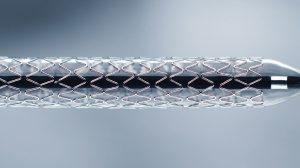NEW YORK (Reuters Health) – Clopidogrel reloading does not benefit patients undergoing percutaneous coronary intervention (PCI) who are already on chronic clopidogrel therapy, Italian researchers reported online April 2nd in the European Heart Journal.
Overall, their study showed “it is safe not to reload” when patients with stable angina are already on maintenance therapy with clopidogrel, lead author Dr. Germano Di Sciascio from Campus Bio-Medico University of Rome told Reuters Health by email. He and his colleagues did find that reloading “would be indicated in patients with acute coronary syndrome (ACS), who have more active inflammatory and pro-thrombotic status.”
In a randomized trial with 503 subjects who had already been taking clopidogrel for at least 10 days, Dr. Di Sciascio and colleagues evaluated the safety and effectiveness of reloading with 600 mg before PCI.
In earlier studies, clopidogrel reloading was associated with an additional significant inhibition of residual platelet reactivity, but the relationship of this added inhibition to clinical outcomes remained unclear. (See Reuters Health story of October 22, 2008.)
In this study, procedural success did not differ between patients who had clopidogrel reloading (250/252, 99%) and those who received placebo (247/251, 98%).
Moreover, there was no difference between the groups in rates of the composite primary endpoint of 30-day death, myocardial infarction, and target vessel revascularization (6.7% with reloading; 8.8% with placebo).
Analyses of pre-specified clinical subsets, however, showed that patients with ACS had significantly lower rates of major adverse coronary events (MACE) with reloading (6.4%) than with placebo (16.3%). In contrast, there was no difference with reloading vs placebo in patients with stable angina, or between diabetics vs non-diabetics, single-vessel vs multivessel PCI, or troponin-positive vs troponin-negative patients.
Post-PCI elevations in creatine kinase-MB above the upper normal limits were more common in the placebo arm than in the reloading arm, but there was no difference between groups in post-procedural troponin elevation.
There were no major bleeding complications and no transfusions in either group. The rate of minor bleeding was the same in both groups (6%). Patients who later had bypass surgery had no no excess surgical bleeding associated with clopidogrel reloading and no MACE at 30 days.
“Antiplatelet therapy and dosing should be individualized according to clinical presentation and to patients’ characteristics, particularly in the current era of novel and more potent agents, thereby doing a true clinically-driven approach to platelet inhibition,” Dr. Di Sciascio said.
“In all patients however, platelet function testing should be done, to evaluate their response to antiplatelet therapy both during PCI and chronically,” he added.
Reference:
Eur Heart J 2010.




